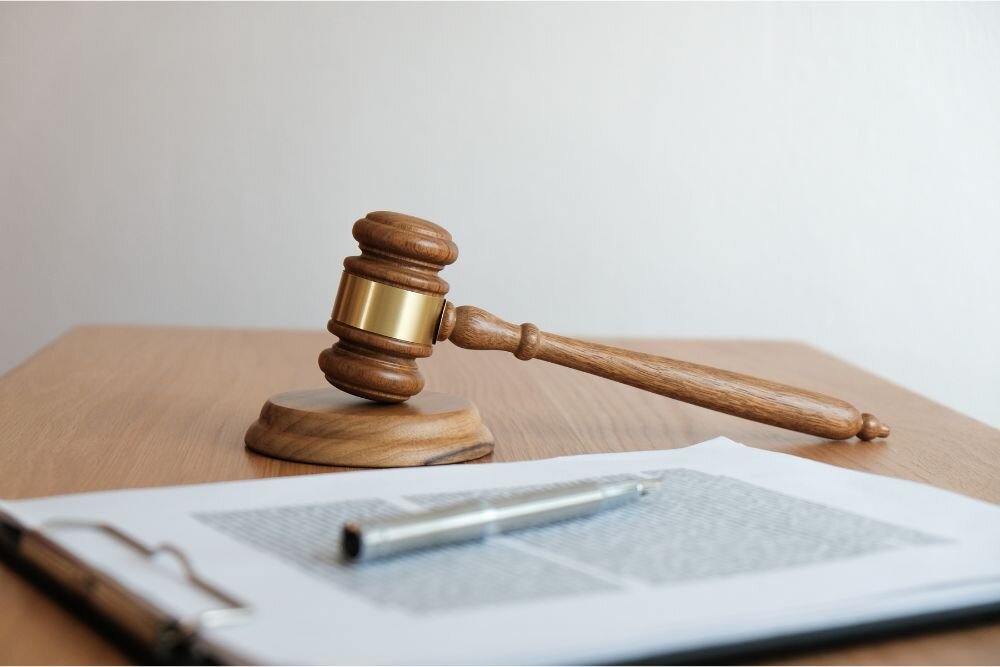Explore Alabama squatter laws and understand how property rights affect owners in 2024. North Alabama House Buyers provides insights into protecting your property under adverse possession laws.
Understanding Squatters’ Rights and Adverse Possession in Alabama
What is the definition of adverse possession in Alabama?

Adverse possession in Alabama is a legal rule. It lets someone claim ownership of a property if they meet certain conditions. This law is part of Alabama law. A person can gain property rights by using it openly without the owner’s permission for several years. This helps clear up who owns the land when the real owner has ignored their rights.
What are the specific requirements for adverse possession in Alabama (open and notorious, continuous, exclusive, hostile)?
To claim adverse possession in Alabama, these things must happen:
- Open and Notorious: You must use the property in a way that anyone, including the actual owner, can see. Your use should show the community you are occupying the land.
- Continuous: You need to live on or use the property all the time. In Alabama, this is usually for ten years.
- Exclusive: You have to use the property by yourself. No one else, not even the owner, should use it.
- Hostile: You must use the property without the owner’s permission. This shows you are challenging the owner’s rights.
You must meet all these rules to make a successful claim under Alabama law.
How long does someone have to occupy a property to claim adverse possession in Alabama?
In Alabama, you need to use a property for at least ten years to claim adverse possession. During this time, your use must be open, notorious, exclusive, and hostile. Meeting all these rules for ten years is required to gain legal ownership.
How does paying property taxes affect squatters’ rights in Alabama?
Paying property taxes can help your squatter’s rights in Alabama. While paying taxes doesn’t automatically give you ownership, it shows you intend to treat the property as yours. This can be strong evidence in court that you acted like an owner of the property.
What constitutes “open and notorious” possession in Alabama? Examples and case studies.
“Open and notorious” possession means you clearly use the property so everyone knows. For example, building a fence, mowing the lawn, or making improvements can be signs.
Case Study Example: In one Alabama case, someone claimed adverse possession after using and taking care of land for more than ten years. The neighbors saw this person as the land’s caretaker, which met the “open and notorious” requirement.
If you have questions about property in North Alabama, consider reaching out to local experts.
Evicting Squatters in Alabama: A Step-by-Step Guide
How to legally evict squatters in Alabama. Detailed steps and legal procedures.

Evicting squatters in Alabama requires following the law closely. First, confirm that there are squatters on your property. You then need to give them an eviction notice. This tells them they have to leave. If they don’t leave, you can go to court and file for an eviction. If the court agrees, law enforcement can help remove them. Understanding Alabama’s laws is important so you do it right. If you need more help, get advice from local experts like North Alabama House Buyers.
Necessary legal documentation for eviction in Alabama. Forms and examples.
To evict someone in Alabama, you need the right papers. Start with an eviction notice. This tells squatters they must leave. If they stay, you file an eviction complaint in court. You also need a summons and proof that you told the squatters about the eviction. Getting these forms and filling them out correctly makes the process easier. Accurate documents help avoid delays.
Understanding the Alabama eviction process timeline.
The eviction process in Alabama takes time. After giving the eviction notice, squatters have seven days to move out. If they don’t, you file a case in court. The court process usually takes two to six weeks. If the court decides the squatters must leave, they get more days to move out, often another seven. If they still don’t leave, law enforcement can help. Knowing this timeline helps you plan what to do next.
Potential costs associated with evicting a squatter.
Evicting squatters can cost money. Legal fees are a big part of this. You might need to pay a lawyer and court fees. There are also costs for serving eviction notices and possibly involving the police. If the squatters damage your property, fixing it could cost more. Knowing these costs helps you budget for the eviction.
Can I use force to remove squatters? Legal ramifications of self-help eviction.
It’s illegal to forcibly remove squatters in Alabama. If you try to do it yourself, you could face legal trouble. You can’t use force or touch their things without following the legal steps. Doing this could mean fines or criminal charges. It’s best to follow the law and reach out to law enforcement if needed. Expert help, like from North Alabama House Buyers, ensures you handle the eviction legally.
Disclaimer: This information is for informational purposes only and does not constitute legal advice.
Protecting Your Alabama Property from Squatters: Prevention Strategies
Best practices for securing vacant properties in Alabama. Security measures and maintenance.
Owning a vacant property in Alabama can be tricky due to the risk of squatters. To keep them away, property owners should take some simple steps:
- Secure the Perimeter: Use strong locks on all doors and windows. Put in an alarm system or cameras to scare off squatters.
- Regular Maintenance: Visit your property often. Keep the lawn mowed and look for any signs of someone trying to get in.
- Lighting: Install outside lights. Motion sensor lights can help make squatters think twice about coming near.
- Local Law Enforcement: Let local police know your property is empty so they can check on it during their patrols.
These steps can help keep your vacant property safe from squatters in Alabama.
Effective tenant screening techniques to reduce squatter risks.
Picking good tenants is key to keeping squatters away. Here are some easy ways to screen tenants:

- Detailed Applications: Ask for detailed applications to get a full picture of potential tenants.
- Background Checks: Check if they have any history of evictions or crimes.
- Credit Checks: Look at their credit report to see if they pay their bills on time.
- Strong References: Call past landlords to make sure the tenant paid rent and followed rules.
- Clear Lease Agreements: Write clear lease agreements so everyone knows the rules and what’s expected.
These methods can help property owners avoid tenants who might turn into squatters.
Essential lease agreement clauses to protect against squatters. Examples and explanations.
A strong lease agreement can protect your rights as a landlord. Include these important parts:
- No Trespassing Clause: Say clearly that anyone not on the lease is a trespasser.
- Inspection Rights: Allow yourself to inspect the property regularly to check its condition.
- Eviction Procedures: Explain the steps for evicting someone if they break the lease or stay without permission.
Adding these clauses gives you better legal protection against squatters.
Regular property inspections: frequency and what to look for.
Checking on your property often helps keep it in good shape and prevents squatting. Keep these points in mind:
- Frequency: Inspect at least every three months. If your property is at risk, check more often.
- What to Look For:
- Signs of someone breaking in or causing damage.
- The condition of the inside and outside needs to be checked to make sure everything looks good.
- Any repairs needed, like fixing leaks or broken things.
Following these tips can help you protect your property from squatters. For more help, contact North Alabama House Buyers. This information is for learning only. Always talk with a lawyer for legal matters.
Legal Resources and Support for Alabama Property Owners Facing Squatter Issues
Where to find legal assistance for squatter problems in Alabama. Attorney referral services and legal aid organizations.
If you own property in Alabama and have squatters, getting legal help is important. You can use attorney referral services to find lawyers who know about squatter issues. Legal aid organizations are also there to help if you can’t afford a private lawyer. These resources guide you through the rules on squatting and eviction, helping you with the right advice.
Available resources and organizations offering support to property owners dealing with squatters.
In Alabama, several organizations support property owners with squatter issues:
- Legal Aid Society of Alabama: Offers free or low-cost legal services.
- Alabama State Bar: Provides a lawyer referral service.
- Local Government Housing Offices: Gives information on squatter laws and eviction steps.
These resources help you understand your rights and find ways to handle squatter problems.
Reliable online resources providing information on Alabama squatter laws.
Knowing Alabama’s squatter laws helps property owners. Here are some online resources:
- Alabama.gov: The official site for legal info and property rights.
- Nolo.com: Provides articles on squatters’ rights and property laws.
- Legal Information Institute (LII): Explains adverse possession and related laws in detail.
These websites give clear information on squatter rights and legal steps so property owners have the facts they need.
Understanding AL HB182 and its impact on squatters’ rights.
AL HB182 is a key law affecting squatters’ rights in Alabama. It explains new rules in property laws and adverse possession. Knowing about this bill helps property owners protect their property and stay updated on legal changes regarding squatters’ rights.
For specific advice or actions regarding squatters, contact North Alabama House Buyers for more help. They can offer solutions for your situation.
(Disclaimer: This information is only for educational purposes and isn’t legal advice. Please talk to a qualified attorney for legal guidance.)
Distinguishing Squatters from Tenants and Addressing Common Misconceptions

How to Differentiate Between a Squatter and a Tenant with an Expired Lease
It’s important to know if someone is a squatter or a tenant with an expired lease. A squatter lives in a rental property without permission. They haven’t signed a lease with the owner. A tenant with an expired lease used to have a legal agreement, but didn’t renew it. Knowing the difference helps property owners take the right action based on property laws.
Legal Implications of Mistakenly Treating a Squatter as a Tenant
If a landlord mistakes a squatter for a tenant, things can get complicated. Property laws give different rights to squatters and tenants. If treated like a tenant, a squatter might get rights they shouldn’t. This can make eviction harder and delay court processes. Landlords need to know who they’re dealing with to avoid legal trouble.
Key Differences in the Eviction Process for Squatters Versus Tenants
Evicting a tenant is not the same as evicting a squatter. For a tenant, landlords must follow rules such as giving notice and filing for eviction in court if needed. Squatters might be removed by involving law enforcement if they’re trespassing. In some places, squatters might gain rights over time, so property owners need to know the correct legal steps.
Addressing Common Misconceptions About Squatters’ Rights in Alabama
People often misunderstand squatters’ rights in Alabama. Many think squatters have no rights or can easily own property. While there are ways squatters might claim property after meeting certain conditions, the law is complicated. Knowing how these laws work helps landlords protect their properties well and avoid problems.
What are squatters’ rights in Alabama?
How do Alabama housing laws address squatters?
Alabama housing laws set rules for squatters who want to claim property. They must live there for a long time, pay property taxes, and use the land openly without the owner’s okay.
Can a property owner remove squatters in Alabama?
Yes, property owners can remove squatters. They should call the police, and may need to start a legal eviction process. A “quiet title action” might be required to settle property claims.
What is the difference between squatters and tenants in Alabama?
Squatters live on property without permission or a rental agreement. Tenants have a lease and rights under Alabama law. Squatters must meet strict rules to claim any rights.
How can property owners protect against squatters in Alabama?
Property owners can check their property often, lock doors and windows, put up no trespassing signs, and keep rental agreements current to stop squatters.
How does adverse possession work in Alabama?
Adverse possession means owning land after living there openly for 10 years and fulfilling conditions like paying taxes and caring for the property. The stay must be without the owner’s consent.
What legal resources are available for Alabama squatters?

Squatters can talk to a squatter rights attorney in Alabama for help with understanding rights, claiming adverse possession, or dealing with property disputes.
Can local law enforcement help with squatters in Alabama?
Yes, local law enforcement can help property owners with squatters. They can see if it’s trespassing and advise on steps for legal removal if squatters won’t leave.
Key Insights
- Alabama housing laws and property rights are important for property owners and buyers. These laws include the rules for squatters’ rights in Alabama.
- Alabama squatting laws explain how squatters can claim ownership, often called adverse possession, after meeting certain conditions over time.
- Knowing the Alabama law on squatters and housing rights helps property owners work with local law enforcement.
- Property owners should know the difference between squatters, trespassers, and tenants to act properly when there are issues.
- Squatters’ legal rights in Alabama depend on things like paying property taxes and living on the property without permission.
- Legal words like quiet title and claim adverse possession are part of understanding property ownership and taking action against squatters.
- Property investors and landlords need to know how to protect their properties from unwanted squatters using security and legal measures.
- Using property management strategies and talking to a squatter’s rights attorney in Alabama can help stop unauthorized occupation.
- Stay updated on changes in the state of Alabama laws that affect squatters’ rights and property regulations.
- A smart approach with lease agreements, checking out tenants, and getting legal advice can prevent problems with illegal squatters.
- If facing squatter issues, knowing how to remove them legally is important.
- Common questions about squatters’ rights in Alabama include the difference between tenants and squatters and what allows squatters to gain ownership.
- Check reputable sources for legal updates to follow property laws in Alabama.
- The North Alabama House Buyers team can help you understand these legal topics—Contact Us for expert help.
Disclaimer
This information is for learning purposes only and does not count as legal advice. Please talk to a lawyer for specific help.
Frequently Asked Questions
What are squatters’ rights in Alabama?
Squatter’s rights in Alabama, or adverse possession, allow people to claim ownership of property if they live there continuously and pay taxes.
How do Alabama housing laws affect property owners?
Alabama housing laws set the rules for property owners, including how to deal with unlawful squatters and enforce property rights.
What steps can property owners take to prevent squatting?
Owners can stop squatting by securing properties, inspecting regularly, and using proper tenant agreements and checks.
Further Resources
- Alabama Real Estate Commission
- Legal Assistance in Alabama
For more help on managing properties and handling squatters, visit our resource hub or contact us directly.
Helpful Alabama Blog Articles
- Property Division in Alabama Divorce
- Selling a Home with Code Violations in Alabama
- Short Sell Your Home In Alabama
- Selling a Condemned House in Alabama
- Costs of Selling a House in Alabama
- Selling A Home That Needs Repair In Alabama
- How to File a Quitclaim Deed in Alabama
- Selling a House with Mold in Alabama
- Squatter’s Rights in Alabama
- Sell Your House While Relocating in Alabama


